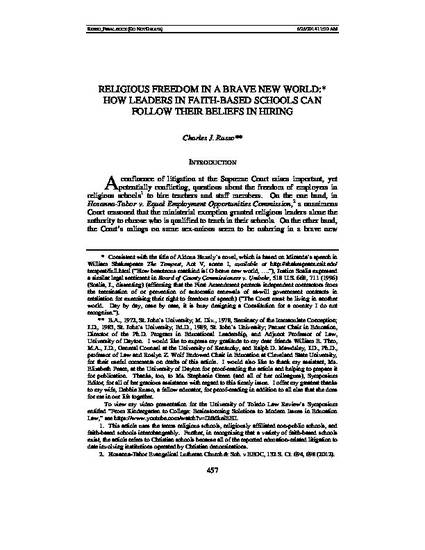
A confluence of litigation at the Supreme Court raises important, yet potentially conflicting, questions about the freedom of employers in religious schools1 to hire teachers and staff members. On the one hand, in Hosanna-Tabor v. Equal Employment Opportunities Commission,2 a unanimous Court reasoned that the ministerial exception granted religious leaders alone the authority to choose who is qualified to teach in their schools. On the other hand, the Court’s rulings on same sex-unions seem to be ushering in a brave new world. For example, in United States v. Windsor,3 the Court struck down the Defense of Marriage Act thereby requiring the federal government to recognize unions that are legal in the States where they were entered. Similarly, in Hollingsworth v. Perry,4 albeit a dispute about standing rather than the merits of the issue, the Justices refused to allow supporters of a voter-initiative from California which defined marriage as a relationship between one man and one woman, to defend it in judicial proceedings. In this brave new world, there is possible conflict over whether leaders in faith-based schools can continue to exercise their professional judgments grounded in their deeply held religious beliefs when hiring personnel or whether proponents of change are unwilling to allow people of faith to live in a country where there is “space for other Americans who believe something different.”5
Available at: http://works.bepress.com/charles_russo/48/

This document is provided for download by permission of the publisher. Permission documentation is on file.